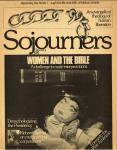I Pledge Allegiance: Patriotism and the Bible. By Paul S. Minear. Geneva Press (distributed by Westminster Press), 1975 $2.65 (paper).
Those seeking study group resources for the bicentennial might well consider this collection of nine bible studies prepared by Yale New Testament scholar Paul Minear. Topics covered include civil religion, “on commemorating revolutions,” amnesty, segregation, the “security-obsession,” etc. Each study provides suggested biblical texts, some analysis by Minear, related quotes from contemporary sources, and a bibliography of supplementary materials. Among the contemporary sources used to illuminate the discussion of racism is a quotation from the Chicago “Declaration of Evangelical Social Concern.”
PROTEST: Red, Black, Brown Experience in America. By James Mencarelli and Steve Saverin. Eerdmans, 1975. $2.95 (paper).
A journalist and a doctoral student in sociology have joined forces to provide a factual, and perhaps somewhat prosaic, survey of the various protest movements that have emerged in recent years to seek justice for the native American, the Black, and the Mexican American. In addition to including a basic statement of the historical experience of each group in American society, the authors sort out the positions and history of major movements and organizations as well as providing biographical sketches of important leaders. While such a book will not significantly shape thinking, it does provide important background in formation for discerning Christian involvement in these areas.
Grace Unlimited. Edited by Clark Pinnock. Bethany Fellowship, 1975. $4.95 (paper).
Sojourners contributing editor Clark Pinnock has followed up his recent turn to “Arminian” theology by pulling together thirteen biblical and theological essays attacking such Calvinist doctrines as predestination, irresistible grace, and limited atonement. I am reluctant to see renewed the acrimonious debates of the 19th century, and this volume is entirely too reminiscent of the categories of those struggles (though Jack Cottrell helpfully points beyond “election to personal salvation” to “vocational election” to service, etc.). The question is none-the-less important and has significant implications for the social out workings of Christian faith. Historically at least, the turn to the Arminian affirmation of human agency has often seemed to support major social change. In the Evangelical Revival, for example, Calvinist George Whitefield tended to defend slavery while Arminian John Wesley repudiated it. And in America the rise of abolitionism may be correlated, at least to some extent, with the rise of Arminian Revivalism. One cannot help but wonder if it’s possible to discern similar connections in the development of Pinnock and others on the contemporary scene.
Bonhoeffer: Worldly Preaching. By Clyde E. Pant. Thomas Nelson, Inc., 1975. $6.95 (also in paper for $3.50).
Promotional overstatement on the dust jacket of this book, suggests a “controversial new study” of Dietrich Bonhoeffer that rescues him from “liberals” who have “twisted the meaning” of his basic concepts obscuring the fact that he was “an evangelical at heart.” The book is actually a translation of Bonhoeffer’s 1934 lectures on preaching at the Confessing Church seminary at Finkenwalde combined with a study of the place of preaching in his life and thought. As such it will probably be of interest primarily to practitioners of the homiletic art, though others may appreciate the reminder of the deeply Christian character of Bonhoeffer’s thought over against some secularizers who have tended to neglect its classical and Christocentric side. One hopes, however, that Pant’s book will not function to reinforce the vapid religiosity and theological superficiality of all too much of American (and evangelical) preaching. Ours is an age that needs to hear again the radical and “worldly” side of Bonhoeffer.
The Magna Carta of Women. By Jessie Penn-Lewis. Bethany Fellowship, 1975. $1.50 (paper).
One of the most sought-after books among those wishing to sustain a “biblical feminism” is God’s Word to Women, authored early in this century by Katherine Bushnell, medical missionary and reformer. Now extremely rare, this book was once well received in biblicist circles because it argued a feminist position out of the Scriptures without appeal to cultural conditioning or other factors that seem to undermine their authority. The Magna Carta of Women is a slightly revised edition of a 1919 summary of Dr. Bushnell’s work compiled by Mrs. Jessie Penn-Lewis, prominent bible teacher and editor of The Overcomer. In reprinting this work, Bethany Fellowship has not only made available again an important biblically rooted defense of the ministry of women and Christian egalitarianism, but has also provided the only readily accessible report of Dr. Bushnell’s exegetical conclusions.
Donald W. Dayton was on the editorial staff at Sojourners when this article appeared.

Got something to say about what you're reading? We value your feedback!
